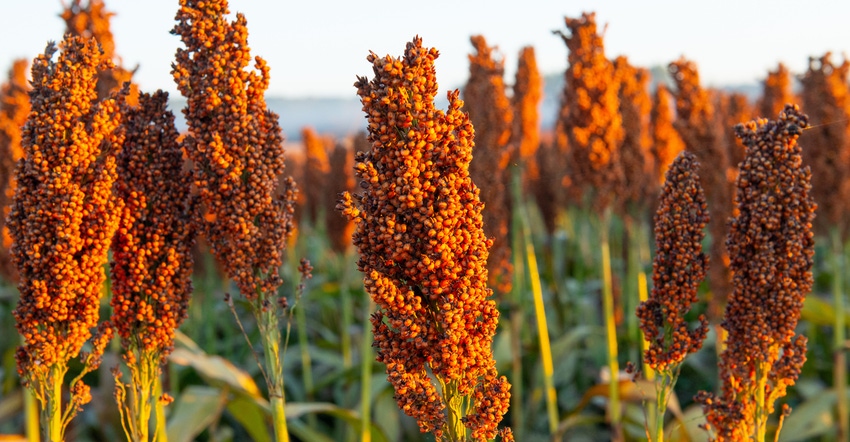October 10, 2022

Congratulations, sorghum farmers! Now U.S. agriculture will know what you’ve known for years — sorghum truly is “The Resource Conserving Crop.”
On Sept. 14, National Sorghum Producers was awarded up to $65 million to highlight the climate-smart attributes of sorghum, reduce overall carbon emissions and translate these facts into value for developing sustainability markets for sorghum as a climate-smart commodity. A significant portion of the funding will go directly to sorghum farmers to implement climate-smart tools into rotations, with the balance going to build a framework to monitor, measure, report and verify climate impacts.
Sept. 14 was a transformational day for sorghum farmers and their many industry partners.
Leaning into good work
Positive climate outcomes follow good farming practices with few exceptions, and our project will seek to leverage this fact by leaning into the good work sorghum farmers are already doing and building out a framework for farmers to be compensated for this good work. The program will provide something for everyone, with farmers able to choose from a menu of practices to implement that fit their specific needs. The per-acre payment associated with each practice will be calculated based on the practice’s value according to the California Low Carbon Fuel Standard (LCFS).
Why focus on the LCFS? The LCFS is the longest-standing, most stable and highest-paying sustainability market. Under the LCFS, more sustainable fuels are worth more, so more sustainable sorghum farming practices should translate to more value for sorghum ethanol. Furthermore, the California Air Resources Board oversees the LCFS, and it’s the most particular of any sustainability regulatory agency in existence. If the framework we develop matches its rigorous standards, it will be good enough for anyone who wants to compensate farmers for their good work. This focus on a tried-and-true market will serve our farmers well.
In addition to incentivizing good farming practices and building out a framework for farmers to be compensated, we’ll look to a host of universities and private partners to scientifically quantify the value of the practices on the climate. Included in this work will be studies on nitrogen use efficiency, irrigation water management and more. We’ll also deploy remote sensing equipment and do extensive soil sampling to add scientific rigor at the farm level. We’re leaving no stone unturned when it comes to finding value for sorghum farmers in sustainability markets.
Working with all farmers
We’re also excited about new partnerships this program has given us the opportunity to build. With the largest Black farming community west of the Mississippi River in Nicodemus, Kan., located squarely in sorghum country, we look forward to engaging these farmers in a big way. Accordingly, we are collaborating with the Kansas Black Farmers Association to provide incentives to its membership and seek ways to work together even more in the future.
Why should sorghum farmers care about this program? Not only will it provide incentives for good farming practices, but it will also help build out a framework for all sorghum farmers to be compensated in sustainability markets. With a large portion of the sorghum belt already practicing some type of reduced tillage, many sorghum farmers are already doing good work that could be compensated. Add on sorghum’s drought and heat tolerance, as well as several other attributes that modern consumers desire, and sorghum could be the most sought-after crop on Earth. We just need the mechanism to deliver that value to consumers — and this program will provide just such a mechanism. Learn more at sorghumgrowers.com/climatesmart.
Duff is founder of Serō Ag Strategies and serves as a consultant to National Sorghum Producers. He can be reached by email at [email protected] or on Twitter @sorghumduff.
About the Author(s)
You May Also Like






